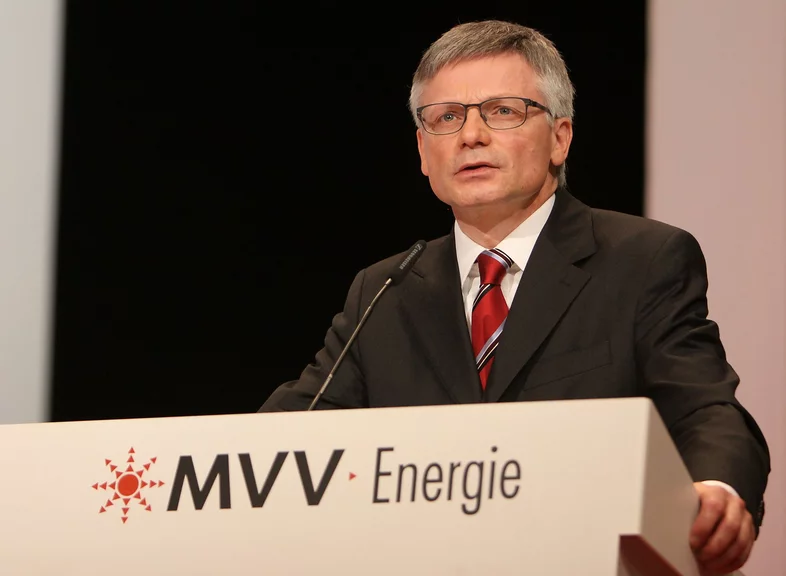Mannheim-based energy company making good progress in expanding renewable energies - Green electricity generation volumes now theoretically enough to supply all households in Mannheim, Offenbach and Kiel
With its clear commitment to the energy turnaround, the Mannheim-based energy company MVV Energie has successfully laid foundations for converting the energy supply. "Expanding renewable energies and enhancing energy efficiency are at the core of our strategic alignment, and that without any ifs and buts," stressed Dr. Georg Müller, CEO of the SDAX-listed group of companies, at this year's Annual General Meeting held in Mannheim's Rosengarten Congress Center on Friday. The Group is making good progress in implementing its ambitious investment targets. Since this year, the MVV Energie Group is now for the first time able to generate sufficient volumes of green electricity to theoretically cover the consumption of all private customers at its three largest locations - Mannheim, Kiel and Offenbach. By 2020, the company intends to invest a total of three billion euros in renewable energies, efficient cogeneration, environmentally-friendly district heating, energy efficiency and the generation of energy from waste, as well as in maintaining and modernising its existing plant and grids. Of this sum, a combined total of Euro 700 million is due to be invested in the current and next financial years alone. Comments Dr. Müller: "We are thus acting as a market-driven pioneer of the energy turnaround and are seizing the opportunities this presents to generate profitable growth."
According to the CEO, the Group's results for the past 2010/11 financial year (1 October 2010 - 30 September 2011) were satisfactory. The company thus managed to increase its sales by 7 percent from Euro 3.4 billion to Euro 3.6 billion. At Euro 242 million, adjusted operating earnings (adjusted EBIT) could be maintained at virtually the same level as in the previous year. "This stable earnings position in a difficult market climate is a particular success and offers clear proof of our Group's performance capacity", stressed Dr. Müller to almost 1,200 shareholders and guests at the Annual General Meeting.
In view of this, the Supervisory and Executive Boards are proposing an unchanged dividend of 90 cents per share to the Annual General Meeting. The current dividend yield has thus returned to around 3.5 percent.
In expanding its use of renewable energies, the Mannheim-based energy company will be relying in future as well on onshore wind power, as well as on biomass and biogas. Now that state governments are creating a more favourable investment climate by amending the legal framework, MVV Energie still sees great potential for wind power, particularly in Southern Germany.
MVV's CEO welcomed the launch of the market premium model for marketing electricity from renewable energies, introduced as of 1 January 2012, as a first major step towards integrating renewable energies, with their fluctuating generation volumes, in line with the needs of the market. Commented Dr. Müller: "The market premium model promotes their interaction with the market even before they become competitive on the market." Not only that, this model offered business opportunities for innovative companies like MVV Energie and could lead to efficiency gains in terms of market integration.
At the same time, Dr. Müller spoke out in favour of new forms of participation, such as "people's wind farms", within the future expansion in wind power. "Participatory models increase people's acceptance of a decentralised energy supply and thus meet a key condition for putting the energy turnaround into practice."
MVV Energie sees environmentally-friendly cogeneration as a further focus of investment in coming years. According to Dr. Müller, the discussions surrounding the future structure of the energy supply were focusing too closely on electricity and gas. "The heating energy supply accounts for around 50 percent of energy consumption in Germany." District heating and cogeneration could make a major contribution towards reaching the ambitious heating energy efficiency targets. That is why the Mannheim-based energy company is calling within the legislative process currently underway for improved subsidies for heat storage facilities and for the retrofitting of conventional cogeneration plants.


